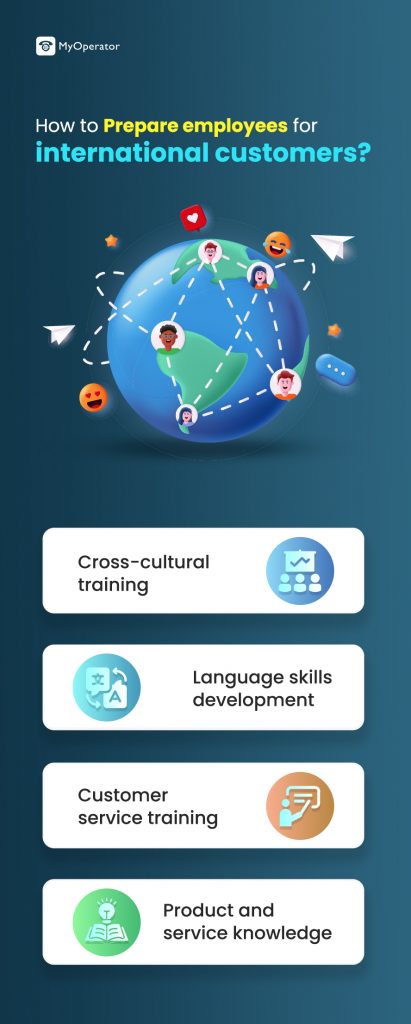Conducting business globally is one aim every growth-oriented business wants to achieve. It not only enlarges the potential market but also protects the business against the risk of possible decline in the domestic market. What’s notable is that with recent globalisation reforms, easy payment gateways, smoother digital connect with people overseas, global business expansion has become much easier and achievable.
Every year, thousands of businesses break their geographical barriers and step forward to reach additional global customers. But only a few of them are able to survive, beating the international competition and creating space for their brand in the potential market.
Now, the question is what are the things which those “few” businesses do and others don’t? How is their strategy different from the rest?
Well, it all begins from the beginning. How businesses prepare themselves before they take that major step, reduces their chances of failure significantly.
what points should you keep in mind while doing business with foreigners? If you are taking your business international in 2024, here are certain factors to be considered in advance:
1. Well-versed with the Global Business
Initial research of any plan affects the final outcome substantially. Thorough in-depth evaluation of the market you’re trying to capture, the one which is completely unfamiliar to you is the most important thing to be done before you get started. Detailed measures include:
- Understand your target audience and the market which would benefit from your business product/service.
- Identify your competitors and conduct proper SWOT [strengths, weaknesses, opportunities, threats] analysis.
- Analyse the difference between your business and the competitors w.r.t to pricing, marketing approach, brand positioning and more.
- Learn about the cultural differences and your product awareness in the specific market/country.
- Fill your business strategy gaps by differentiating between your domestic and foreign market space
Simply put, extensively study your potential market, the probable opportunities and challenges it can have for your business
2. Globally Optimize Your Brand
Each commercial market has its own marketing trends and what works in one country might not perform in other countries too. The target audience, their product understanding, their used keywords, their behaviour, all would vary from the local ones. This gap should be found and make changes on business marketing.
- Make the required changes on the website and showcase it according to web visitors of different countries.
- Inculcate international SEO in your marketing strategy. To build a stronger SEO strategy before going global, research your competition. For better positioning, scrape Google to improve your content and get the best keywords for your niche. Make content that is readable, but don’t forget to make it country-specific; after all, the best global practices work best when they are applied locally.
- Understand the regulations related to digital marketing in different countries is something you need to take care, especially during paid campaigns.
- Identify the most effective platforms to reach your potential customers digitally. People of one country might be more active on emails while others might be better reached through targeted ads.
- Analyse the search behaviour of the foreign audience and optimise your content as per that.
As a business plan on its global expansion, its brand marketing should be modified accordingly to ensure effective and worthy marketing.
3. Comply with Foreign Policies and Norms
Make your product market-ready. Each country has its own regulations and norms for its commercial market. It is important that your business confines to all such necessities, including data privacy laws like the GDPR and CCPA. To avoid any probable legal conflict or compliance gaps, you may also consider using a data compliance portal such as ComplyDog that can help you automate a big chunk of all compliance processes. Some of these aspects are:
- Be sure of Intellectual and property rights.
- Testing and quality assurance of your product based on each country’s defined local standards.
- Check for laws related to import and export of products.
- Understand the tax-related norms related to products, services and conducting business.
- Learn about the labour and employment laws (if you’re planning to hire someone for your overseas business).
4. Prepare Employees for International Customers
From product keywords to behaviour to preferences, consumers are different in many ways. It is important to train your team for the required changes in their approach while dealing with foreign prospects.

This could be something like:
- Making them familiar with the possible cultural gap with cross-border customers and train them accordingly.
- Make changes in their sales pitch as per the keywords used by the foreign customers (which could be different from your domestic ones). Identify the same product with different names in different countries.
- Depending on your target market, you might even need to hire people knowing different languages.
- You should take care of not only pre-sales, but also after-sales customer service and support. Considering the time gap between different countries, your team should be ready to attend calls accordingly.
5. Work on Brand Image and Local Business Presence
Capturing an alien market and doing business with foreign consumers is one big challenge. Besides all other aspects, trust and credibility in your buare two things which are difficult to gain. Your potential customers should have confidence in your business and for this, localisation of your brand is a prime requirement. It encompasses:
- Ensure local business presence with a local business contact number in your target countries. An international contact number could be an obstacle for your potential customers while contacting your business.
- Mould your business marketing and pitch in a language and content familiar to the foreign audience.
- Upgrade your brand image with a toll-free business number to convey your business professionalism and reliability to your target audience.
- Partner with resellers or distributors who are located in that country and are well-versed with the market.
- If possible try to include a Virtual Business Number or else had a Cloud Call Center software in to your business communication system
6. Language and Communication
A successful international business depends on effective communication. Language barriers can make it difficult to collaborate, engage customers, and operate efficiently overall.
Take into account the principal language(s) used in the target market and decide whether you need to hire local workers who are literate in the language or use translation services.
Additionally, developing strong connections and creating trust with international partners, clients, and customers requires a grasp of cultural differences in communication methods and business conduct.
- According to a CSA Research survey, 75% of consumers prefer to purchase goods in their mother tongue, highlighting the significance of localization and effective communication.
- Over 7,000 languages are spoken in the world, according to Ethnologue, underlining the importance of language support and cultural sensitivity when interacting with various markets.
7. Supply Chain Management and Logistics
For foreign operations to be successful, a logistics and supply chain network must be reliable and effective.
Analyse the supply chain management system, the cost of transportation, the import/export rules, the customs procedures, and the accessibility of local suppliers.
Think about how difficult it is to coordinate distribution, shipping, and inventory across borders.
A handy move to support this process is using residential proxies. These proxies allow businesses to simulate being in a specific region, enabling access to location-based logistics platforms or suppliers. This way, residential proxies can help you verify regional availability, pricing, and shipping details from local suppliers more effectively.
Creating partnerships with regional logistics service providers and suppliers can help organise operations and lessen logistical difficulties.
- According to the World Bank’s “Connecting to Compete 2018” study, Singapore, the Netherlands, and Germany are the top-performing nations in terms of logistics efficiency, highlighting the significance of supply chain optimization for increased global competitiveness.
- The COVID-19 pandemic brought to light the importance of robust supply chains and prompted a greater emphasis on automation, digitisation, and risk management techniques to lessen interruptions.
8. Market analysis and commercial success
It is crucial to carry out in-depth market research before entering new markets.
This process involves factors that might affect consumer behaviour, such as:
- Evaluating the market for your goods or services
- Examining the competitive environment
- Determining the target market
- Understanding distinctive cultural characteristics
You can evaluate the possibility of survival and success of your company in the new market by conducting detailed market research.
- Research and Markets analysis estimates that the global market research industry was worth $76.3 billion in 2020 and anticipates it will grow to $132.3 billion by 2027, underscoring its importance in business decision-making.
- According to a McKinsey & Company analysis, businesses that prioritise market research get an ROI of 10% higher and are more likely to succeed in expanding into new areas.
The globalisation of your business can be a game-changing move toward long-term success and growth.
To achieve a seamless transition into new markets, it is necessary to carefully analyse a number of aspects.
You can position your company for success in the global market by doing in-depth market research and understanding legal and regulatory environments.
Additionally, determining its financial sustainability, improving logistics and supply chain, and overcoming communication and language hurdles are essential considerations.
The key to succeeding in the global business landscape is adaptability, cultural sensitivity, and a proactive attitude.
Always remember that each region has particular challenges as well as opportunities.
So,are you prepared to embark on a thrilling global business expedition?


